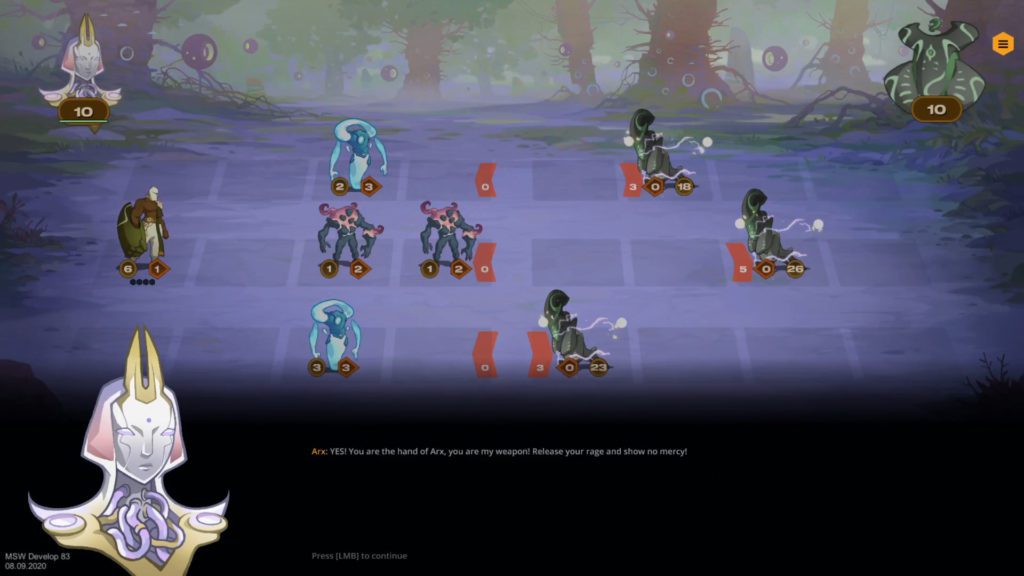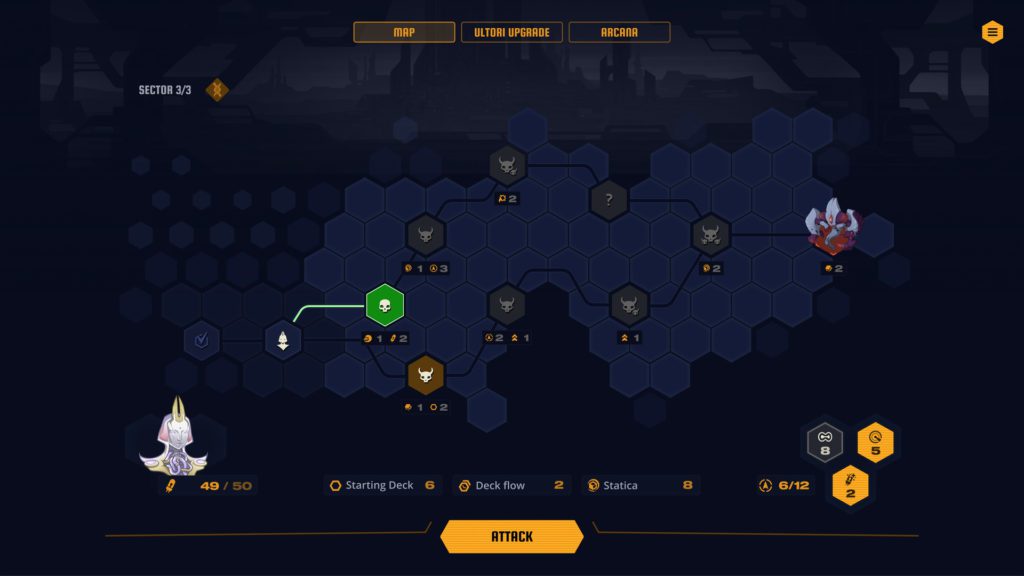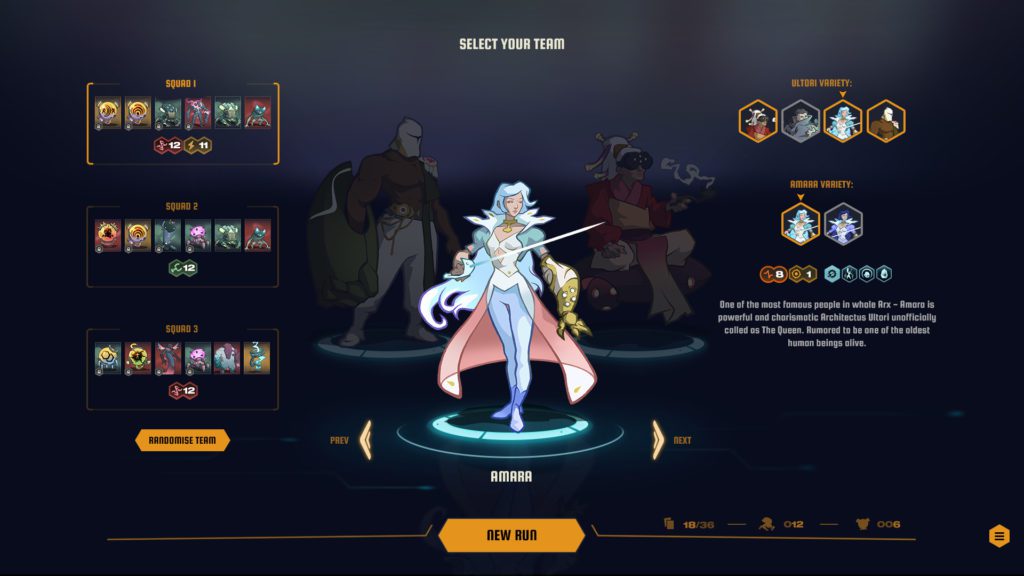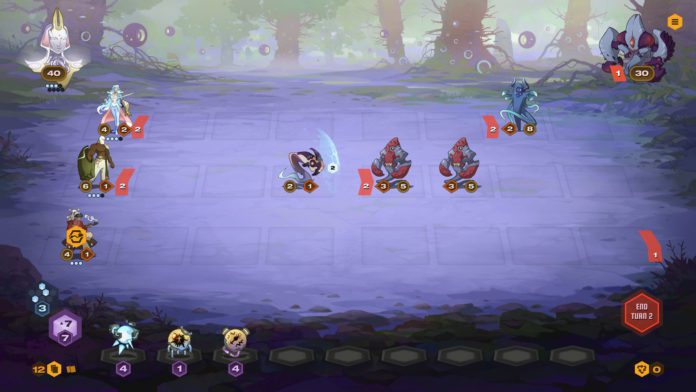REVIEW : Against The Moon (PC)
Roguelikes and rogue-lites are a style that you can find plenty on Steam. There are numerous examples of great plays in this genre duo, but they come with their design risks. Their random nature means that if a developer isn’t careful, it can destroy how the game works from the get-go. This grievously means that for every Enter the Gungeon or Slay the Spire, there is an Against the Moon.

Against the Moon‘s obstructions begin right at the design level. In most rogue-lite card games, even though the enemies you face and dungeons you enter may be randomly generated, typically your cards are not. The cards you play, if not the particular cards in them, are a recognised capacity to some degree. Against the Moon does not take that identical approach. You have a bunch of cards that you can expand by spending in-game money gained through playing on “research.” The study adds one arbitrary card to your overall collection, and it costs more each time you use it.

The problem comes in when you enter battles. You have three lanes on which your main heroes, called Ultori, randomly appear, and you summon creatures to deal damage to the enemy’s units and attack their leader. The concept alone is simple enough. But every time you play a narrative mission or go on a run, the cards you begin with are completely arbitrary. You can unfasten more cards for your deck during your run by using “meta cube” that can be awarded after only certain battles, but this is a crucial flaw in the game’s design. It would be the equivalent of taking a giant box of random Magic The Gathering cards, shaking them up, and grabbing 60 to build a deck. This gives the player no authority over how they want to play and means the cards you open may never show up in your deck.
Have you seen Dune?
One of the golden rules of card game design is that you want players to be able to play with their cards. This may seem obvious, but the way that Against the Moon is designed means you have almost no control over which of your cards you can play with. Another element that compounds this is the sheer randomness of battles. In one of the narrative missions, I had a unit that could not die and I had to defend it. I also had an opponent on board that I could not defeat. This enemy was designed this way; they leave the committee after three or four turns for story goals. There are only three lanes where characters can be placed, and once they are placed on random. Again, another instance of the game eliminating even more of the player’s control. There were numerous times where the unit that can’t die and the opponent that I can’t kill are on the same lane, and I have to instantly restart the fight because that unit will die before the opponent leaves.

Against the Moon is filled with frustrating design choices like this, and it takes the simple-to-learn and, admittedly, fun fight and shoots itself in the leg regularly. The story of the game is another instance of wasted potential. In a far-future Earth, the moon itself is trying to destroy humanity, summoning creatures to try and take out what is left of the human race. The remains of humanity are huddled in an enormous city protected by an ancient being, granting heroes called Ultori with extraordinary powers to protect the people.
You have to infer most of it by the nature of having tutored other sci-fi media that tell alike stories. On the other side, if you have seen practically any dystopian sci-fi movie earlier, you can see each of the stories beats getting a mile away.
The music is also extremely limited, looping after a very short volume of time on maps and menus. There appears to only be a small handful of tracks and you will hear the same song again usually after a very short amount of time. I found myself turning the in-game audio off after only a few minutes with each new map I entered. Against the Moon has a unique world with an interesting premise that I would have liked to see explored a lot more. The constant spelling and grammatical errors in the game’s text don’t help with keeping your immersion intact, either.

You should probably just watch Dune
Almost all of the problems might have been made more tolerable if there were story and content to dig in to, but there is not. This game is not in early access; this is supposed to be a full release for USD 20. For that price, you get two narrative missions that individual take only an hour to beat and an infinite mode that just pits you against swarms of randomly-spawned enemies on randomly-generated maps. In a world where plays like Fall Guys and Among Us exist, each contributing a superior level of quality either free or super cheap, this is unacceptable. I originally thought I had a beta code when I began the game because, to be honest, it didn’t even cross my mind that this was the complete game. The other four-story missions are marked “coming soon,” which is unacceptable for a fully-released game.
REVIEW : Assassin’s Creed Valhalla (XBOX Series X)





![Forza Horizon 4 XBOX Series X Gameplay [4K60FPS] – Dodge Charger 69 – P2](https://www.hgunified.com/wp-content/uploads/2022/12/maxresdefault-21-100x70.jpg)








